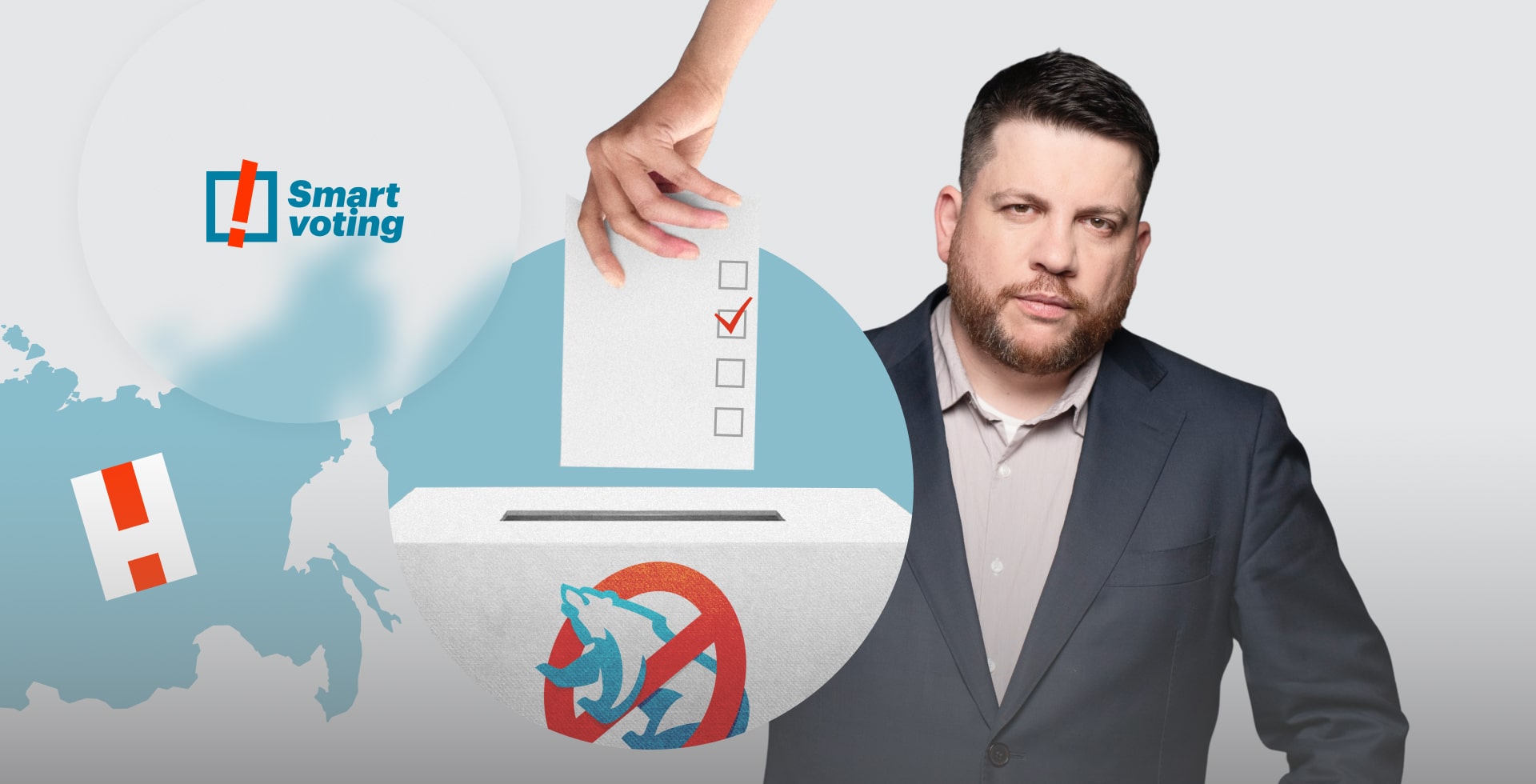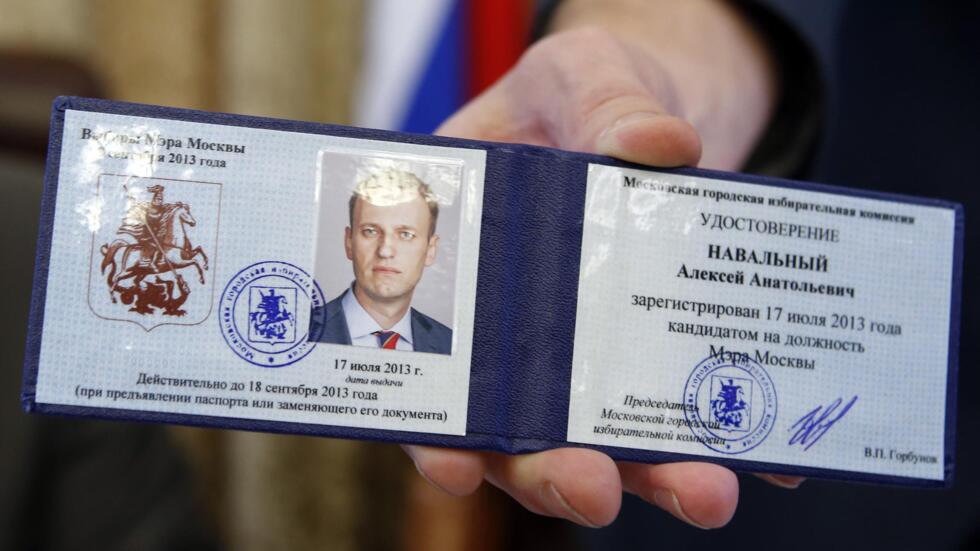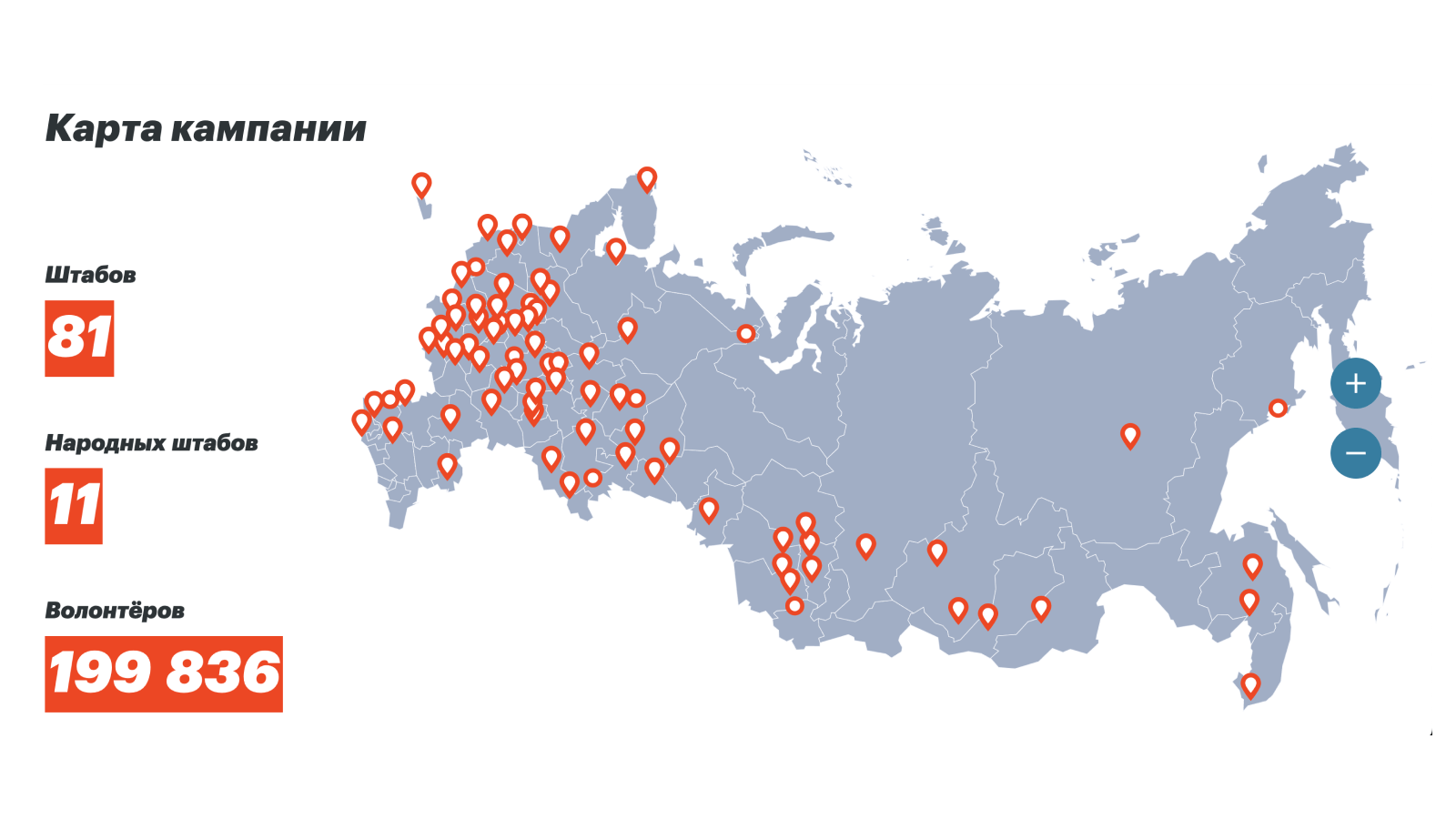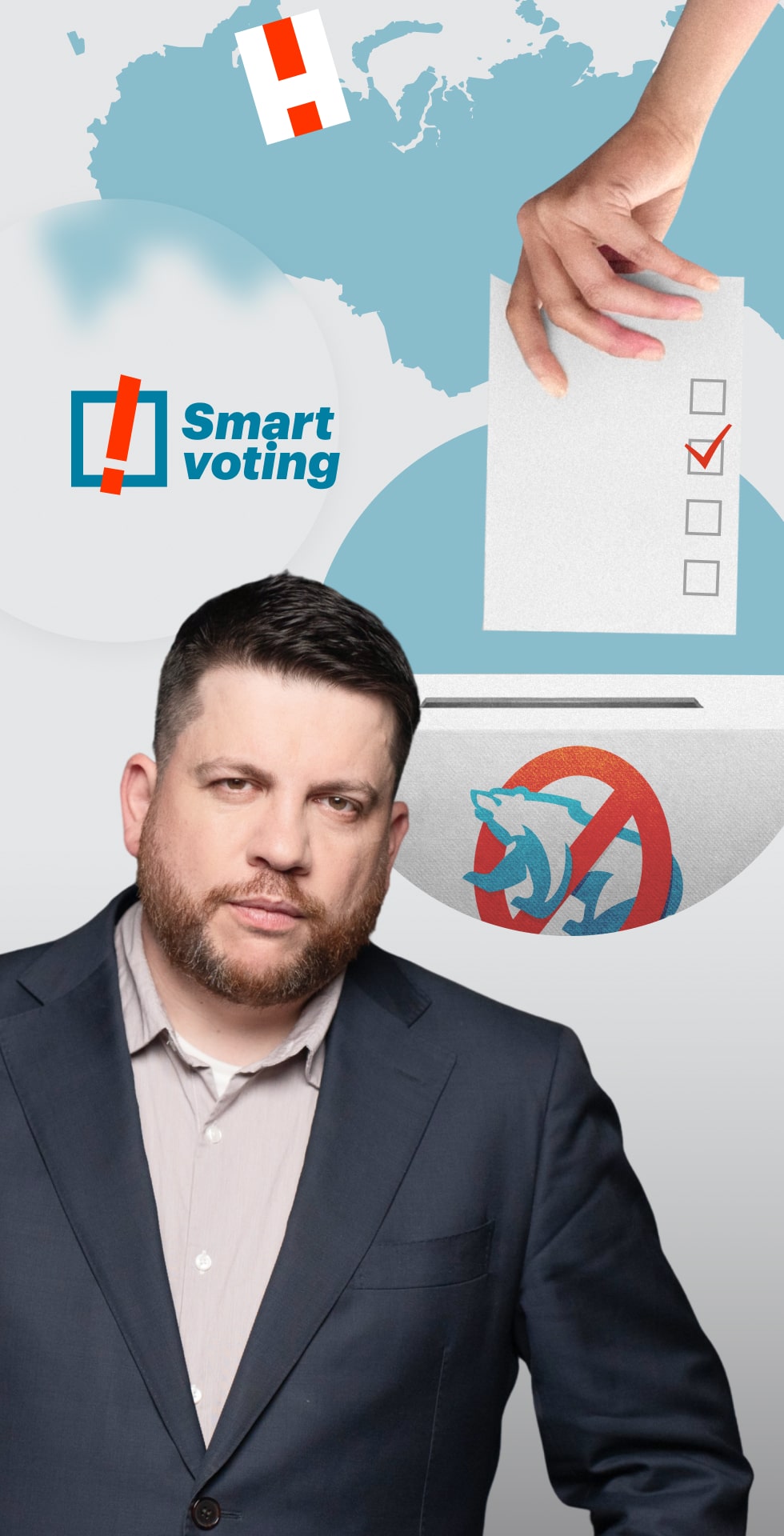
Elections
Since its founding, the FBK has played an active role in Russian elections. We've monitored polling stations, educated voters, supported independent candidates, and even nominated our own.
In the 2013 Moscow mayoral election, Alexei Navalny came in second and had a strong chance of winning in the second round. However, to ensure the victory of United Russia’s Sergei Sobyanin, the authorities resorted to fraud, adding 30,000 fake votes, and prevented the elections from going to a second round.

In advance of the 2018 presidential election, Alexei Navalny and the FBK led a powerful and dynamic campaign. Rallies and meetings with voters in 27 cities across Russia, campaign offices in 68 regions, a signature collection system, and hundreds of thousands of volunteers—no one in the country had done anything like it before. We brought politics back to the regions, and Alexei Navalny reinforced his status as Putin’s main opponent. It is for this reason that the authorities refused to let him run in the election.

In 2018, we launched the Smart Voting campaign to challenge United Russia. Navalny devised a tactical voting strategy to get behind the strongest candidate running against United Russia.
Since then, the project has helped dozens of independent candidates get elected across the country. In response, the authorities introduced an unverifiable electronic voting system which gives free reign to election rigging. As a result, participating in elections has become a thousand times harder, but we continue to support those who do.



